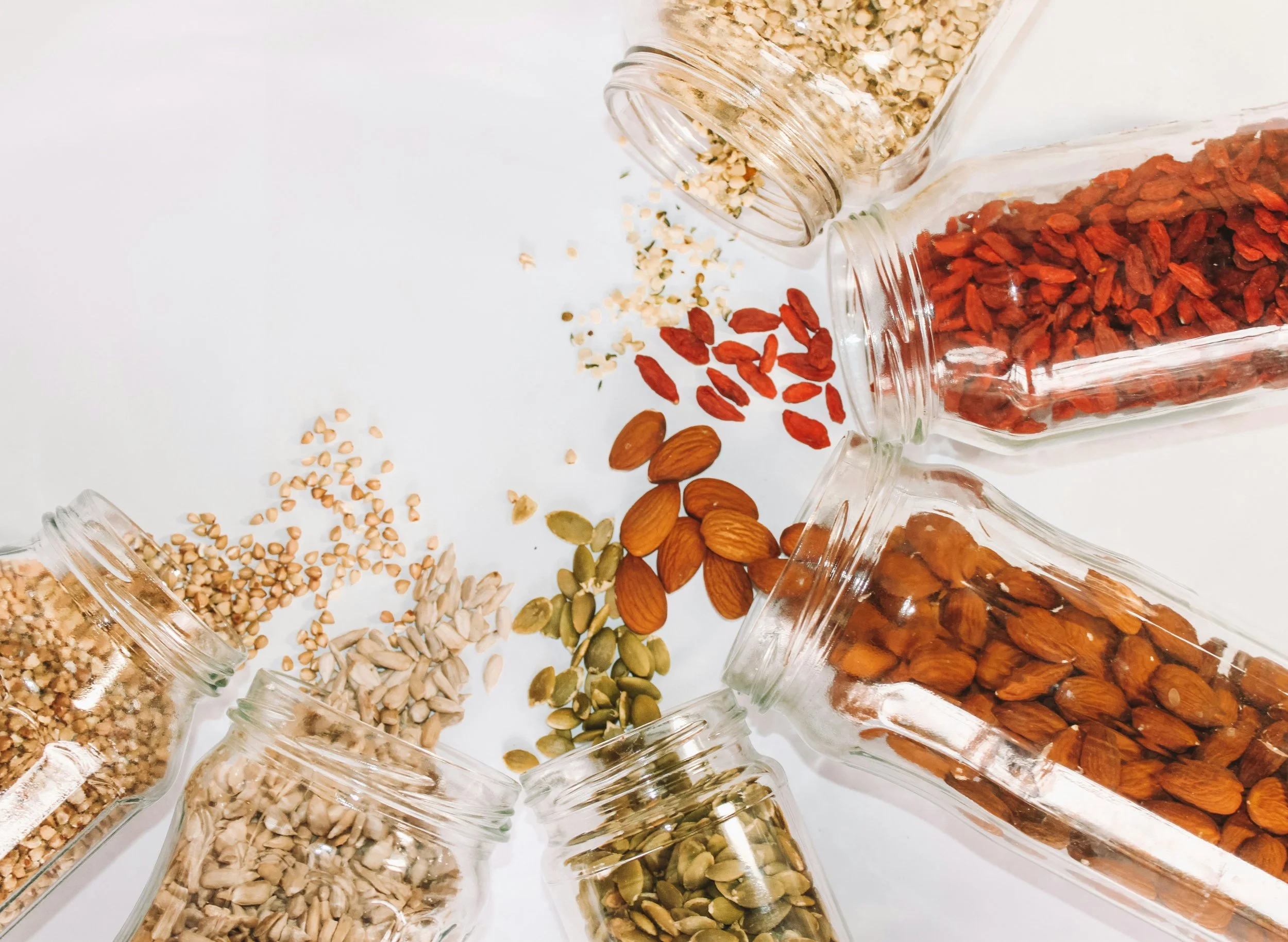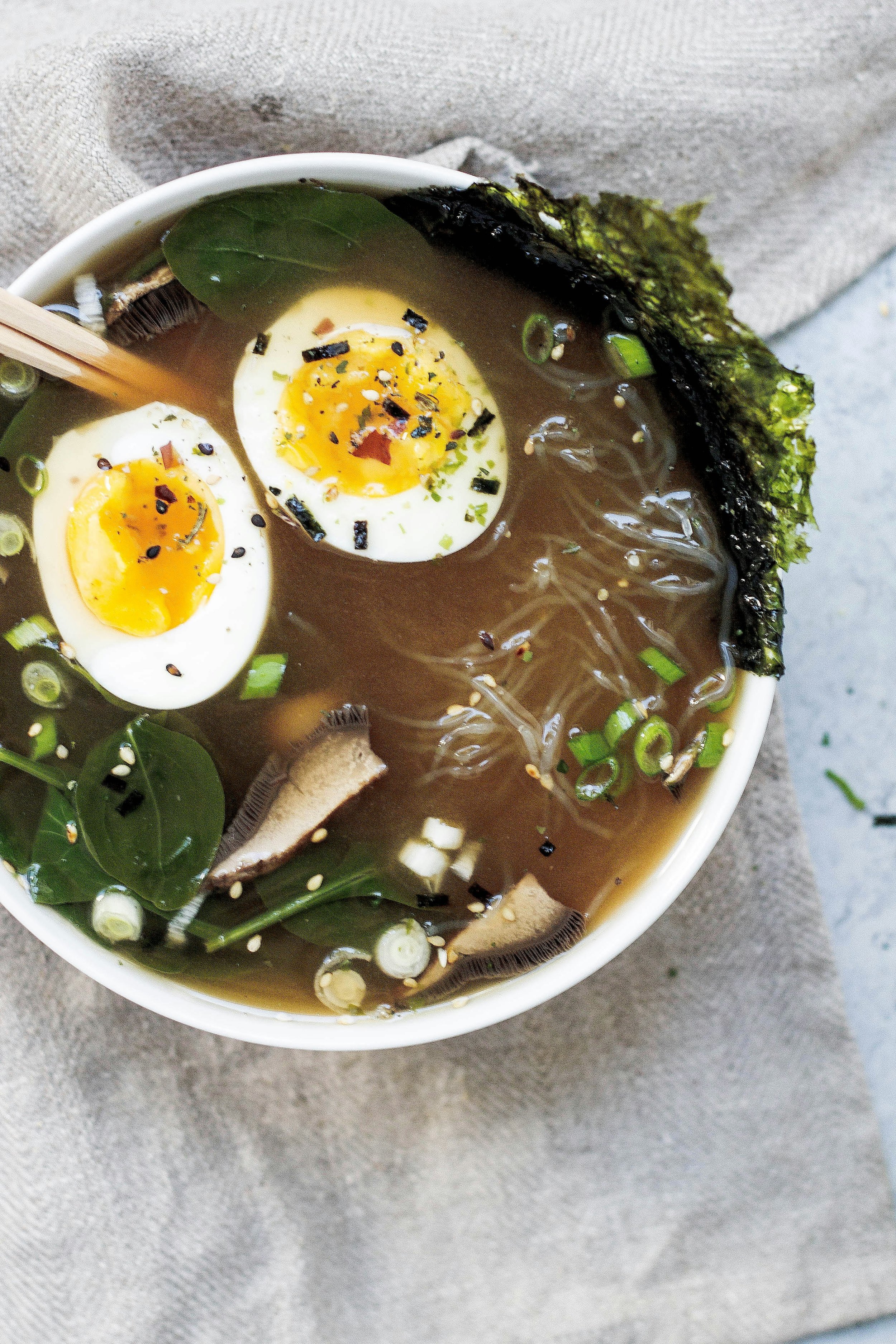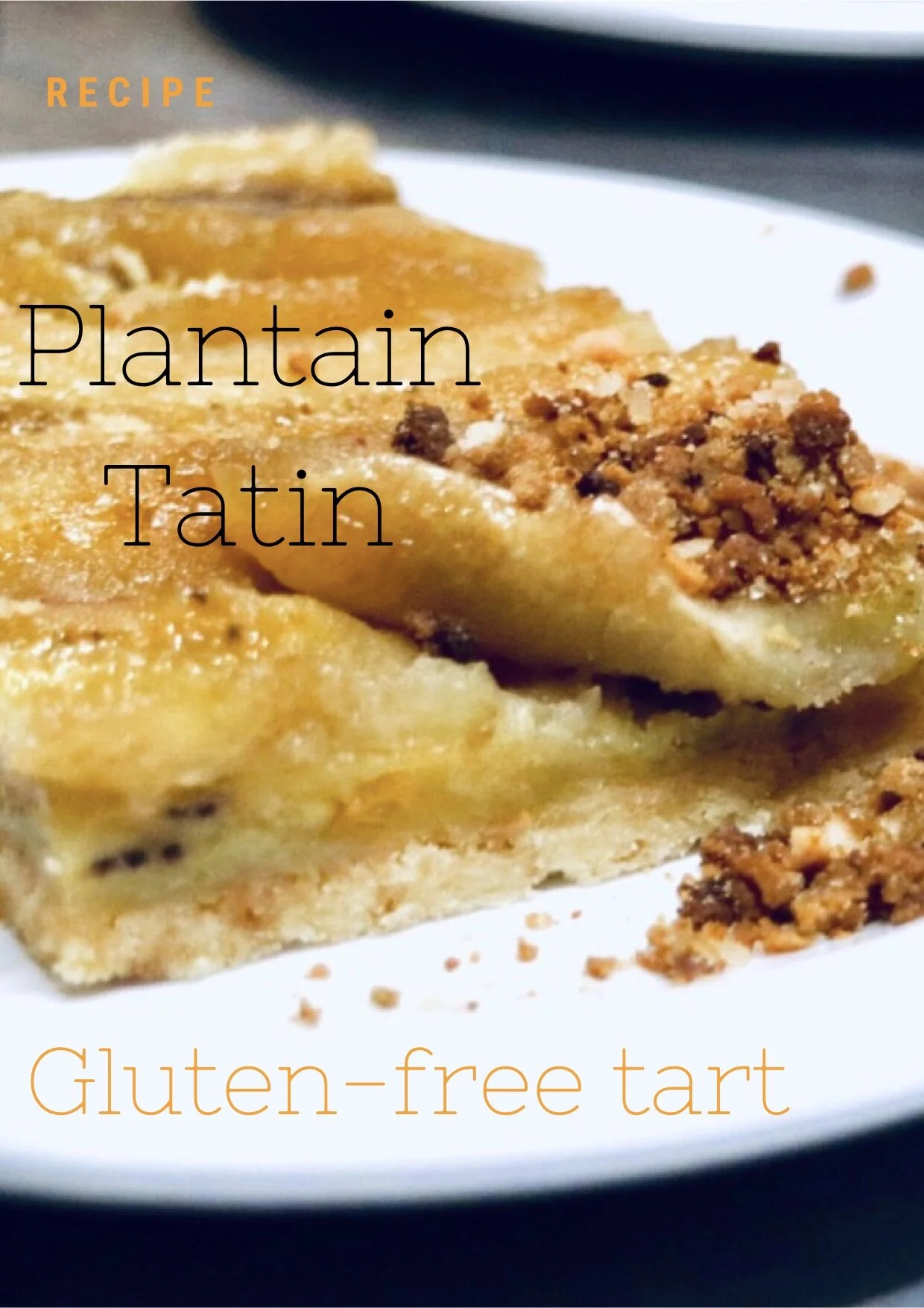Top nutritious and protein rich Nuts & Seeds
What is protein?
Proteins are known as the building blocks of our body, they break down into amino acids that help the cells grow and repair. Our hair, skin and muscle are all made from the protein we eat since proteins are present in all living organisms while including many essential biological compounds such as enzymes, hormones and antibodies.
There are 26 individual amino acid standards needed for good health, (21 needed for adults) and 9 essentials as the body cannot produce them and they need to be ingested via food via proteins; If the protein you eat has all the 9 types of amino acids, it is called a "complete protein“; All animal proteins are complete proteins (milk, eggs, cheese, fish and meat all contain 9 amino acids). Check our Nutrition guide for more insight on macronutrients and micronutrients.
In plant sources soy protein, quinoa and Quorn contain all the essential amino acids needed for good health. Other plant sources of protein lack one or more of the essential amino acids but it doesn’t mean vegan diets will necessarily lack proteins or that you need to eat plant-based proteins in certain combinations: The secret is in eating a variety of plant protein everyday providing you with all the essential amino acids your body needs.
How much protein do I need?
In the UK, the Reference Nutrient Intake (RNI) is 0.75g of protein per kg bodyweight per day for average-weight adults (~56g/day for men , ~45g/day for women depending on bodyweight). So with that in mind lets see which natural food have the highest protein nutritional value per 100g. Also included a column for the amount of protein per 100 calories if you’re trying to lose weight and still hit certain macros.
Almonds (USA, Vitamin E, magnesium).They strengthen the immune system, support heart health, and encourage good skin and hair. Strong antioxidants like vitamin E shield cells from oxidative damage, and magnesium maintains muscular tone and blood pressure regulation. There are 21.1 grams of protein in 100 grams of almonds, and even almond milk has a decent amount. However nuts also contain a lot of calories and omega 6 fats so let’s be mindful with our daily intake.
Walnuts (USA/Chile, Omega-3, antioxidants). Known for their ability to support the brain, they are rich in antioxidants and Omega-3 fatty acids. Antioxidants help prevent chronic diseases and fight oxidative stress, while omega-3 fatty acids promote cognitive function and lower inflammation.
Brazil Nuts (Brazil, Selenium). A single Brazil nut supplies the daily required amount of selenium, a mineral vital to immunological and thyroid function. As a potent antioxidant, selenium shields cells from harm and promotes DNA production.
Pistachios (Iran/USA, Vitamin B6, antioxidants). High in antioxidants and vitamin B6, help decrease cholesterol and support heart health. The neurological system and energy metabolism are supported by vitamin B6, and oxidative damage and inflammation are prevented by antioxidants. With a solid 20.2 grams of protein per 100 grams, pistachio nuts are a great form of vegan protein. Their omega 3 to 6 fat ratio is significantly better than almonds but still important to be mindful of our daily intake.
Macadamia Nuts (Australia, Monounsaturated fats). High in monounsaturated fats, are beneficial to the heart and lower cholesterol. These beneficial fats lower inflammation, enhance cardiovascular health, and boost cognitive function.
Cashews (India/Brazil, Copper, magnesium). They help to maintain healthy bones and nerves. Magnesium aids in blood sugar regulation and promotes muscle function, whereas copper is essential for the synthesis of collagen and energy production.
Pecans (USA, Antioxidants). Rich in antioxidants, pecans aid in lowering inflammation and warding off chronic illnesses. These antioxidants, which support cellular health and fight oxidative stress, include vitamin E and ellagic acid.
Pumpkin Seeds (China, Magnesium, zinc). High in zinc and magnesium, strengthen the immune system and advance prostate health. While magnesium promotes the health of muscles and nerves, zinc is necessary for the immune system and the healing of wounds. They also provide a fertility boost. Pumpkin seeds have 18.5 grams of protein per 100 grams. Like most seeds, they are not only a great source of protein, but minerals like magnesium, zin, and copper as well. Similar to nuts, the omega 3 to 6 fat ratio of seeds (avoid sunflower seeds in particular) isn’t always great.
Hemp Seeds (Canada, Protein, omega-6, linolenic acid). Rich in protein, omega-6 fatty acids, and linolenic acid, aid in the maintenance and repair of muscles, strengthen the heart, and lower inflammation. Gamma-linolenic acid, which promotes hormonal balance and anti-aging mechanisms, is also present in them. Hemp seeds have 31.6 grams of protein per 100 grams. Not only are they one of the top vegan protein sources, they are also a great source of healthy fats and iron in vegan diets.
Flaxseeds (Canada, Omega-3, fiber). Rich in fibre and Omega-3 fatty acids, which promote heart health, healthy digestion, and hormonal balance. While fibre supports healthy digestion and blood sugar regulation, omega-3 fatty acids lower inflammation and enhance brain function.They also support hormonal balance; Flaxseed is the richest dietary source of lignans, a plant nutrient type of phytoestrogen somewhat similar to the female hormone estrogen. Due to this similarity, lignans may have estrogenic and/or anti-estrogenic effects in the body. With 18.3 grams of protein per 100 grams, Flax is one of the best vegan sources of omega 3 fats (along with chia seeds) while also being a great source of several vitamins and mineral. A fantastic food to ass to your diet alongside some oatmeal or in smoothies, salads and even as a “vegan egg” when baking.
Chia Seeds (Mexico, Fiber, omega-3). High in fibre and Omega-3 fatty acids, are beneficial for heart, brain, and digestive health. Omega-3 fatty acids and fibre work together to lower cholesterol, increase fullness, and improve cognitive performance. Also great for heart health.
Sunflower Seeds (Russia, Vitamin E): High in Vitamin E, support healthy skin, hair growth, and the immune system. As a strong antioxidant, vitamin E helps the immune system work and shields cells from oxidative damage. They also benefit hair growth.
Peanuts (USA, Protein). Nutrients such as vitamin E and magnesium are included in peanuts, which are also a rich source of protein and assist the formation and repair of muscles. As an antioxidant, vitamin E shields cells from oxidative damage, and magnesium maintains the health of muscles and nerves. Peanuts have 25.8 grams of protein per 100 grams. While technically not a nut, they are one of the best foods for vegan bodybuilders. Peanut butter is easy to add to a variety of other foods and peanuts themselves taste great.
Black Sesame Seeds (China). Because they contain melanin, black sesame seeds are good for hair health and can help reverse the ageing process of grey hair. In addition, they offer vital minerals like calcium, iron, and magnesium that promote healthy bones and general wellbeing.
White Sesame Seeds ( China). Rich in calcium, iron, and zinc, white sesame seeds promote bone health, immunological response, and wound healing. Additionally, they contain lignans, which lower the risk of chronic diseases and promote heart health due to their anti-inflammatory and antioxidant qualities.
Nigella Seeds (Middle Eastern/Indian). Popularly referred to as black seeds, are high in antioxidants and have long been utilised in traditional medicine. They aid in digestion, promote kidney function, and possess antibacterial and anti-inflammatory qualities. Essential fatty acids included in nigella seeds also improve heart health and brain function.
Seeds – Seeds like flax and chia both have a good amount of protein, and are also some of the best vegan sources of omega 3 fats. A good way to ingest them is sprinkled on top of salads, oatmeal or blended in smoothie. Tip: Ground seeds will absorb much better than whole seeds.These nutrient-dense nibbles are not just snacks; they're compact sources of vitamins and minerals. Here’s an exploration based on their nutritional value:








